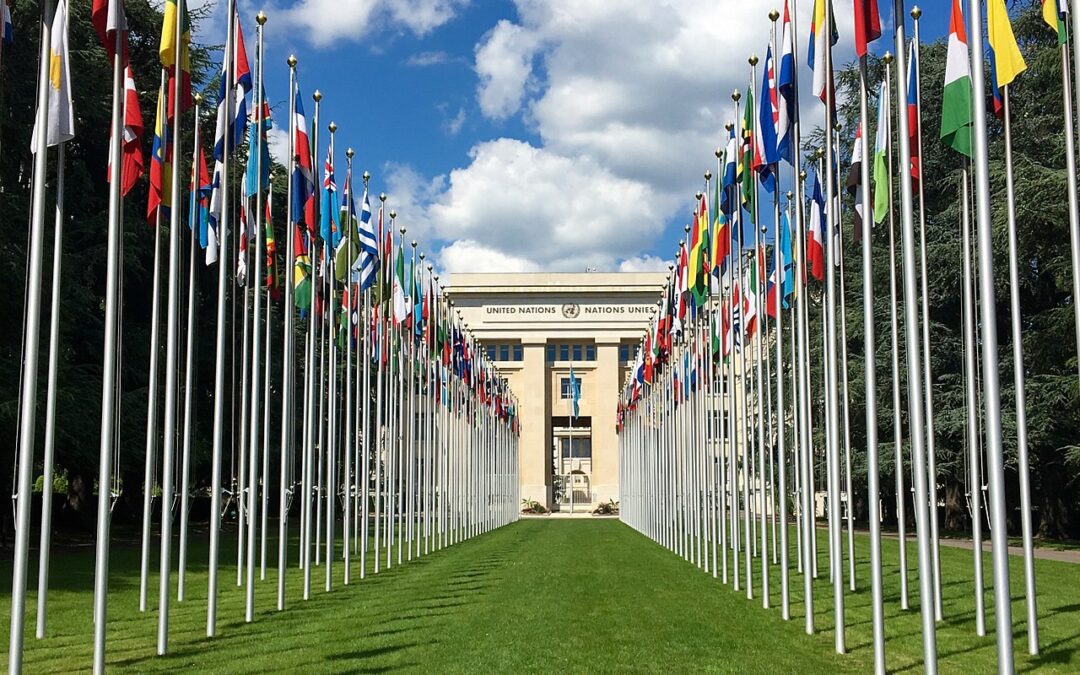
Sep 18, 2018
The ICJ today urged States not to vote for candidates whose human rights records should disqualify them from membership, in upcoming elections to the UN Human Rights Council.
The ICJ together with dozens of other NGOs made the call in an open letter to all UN member States:
“To Permanent Representatives of Member States of the UN General Assembly
18 September 2018
Member States of the UN should refrain from voting for candidates to the Human Rights Council that are unfit for membership
Excellencies,
Ahead of the next UN Human Rights Council (“HRC” or “the Council”) election, we, the undersigned national, regional and international civil society organisations, write to urge your delegation to refrain from voting for candidates that blatantly fail to fulfil the Council membership standards outlined in UN General Assembly (UNGA) resolution 60/251.
Paragraphs 8 and 9 of resolution 60/251 state that the UNGA:
- Decides that the membership in the Council shall be open to all States Members of the United Nations; when electing members of the Council, Member States shall take into account the contribution of candidates to the promotion and protection of human rights and their voluntary pledges and commitments made thereto […];
- Decides also that members elected to the Council shall uphold the highest standards in the promotion and protection of human rights [and] fully cooperate with the Council […].
We are concerned that several of the States that are running for election fail to fulfil minimal requirements with regard to both the promotion and protection of human rights and cooperation with the Council and other UN human rights bodies and mechanisms. Some of these candidates show a pattern of non-cooperation with the UN human rights system and attacks against UN Special Procedure Mandate-Holders that is incompatible with Council membership. Furthermore, some of this year’s candidates have engaged in acts of intimidation and reprisals against human rights defenders and civil society organizations, who play a key role in the Council’s work. Voting for these candidates would undermine the Council’s credibility and institutional integrity.
We urge you to treat human rights considerations and the substantive Council membership criteria outlined in resolution 60/251 as paramount in electing members to the Council, rather than engaging in vote trading or privileging political considerations over fundamental human rights.
In October 2018, the next HRC election will determine which States sit as Members of the Council in the next three years (2019-2021). Considering that States must receive a simple majority of votes (i.e., 97) to be elected, that voting takes place by secret ballot, and that electing States are under no obligation to vote for each and every candidate within a regional group, we urge your delegation to simply refrain from voting for unfit candidates. Doing so will require leaving the ballot blank for those candidate States your delegation considers unfit.
Sincerely,
African Centre for Democracy and Human Rights Studies (ACDHRS)
African Centre for Justice and Peace Studies (ACJPS)
Americans for Democracy & Human Rights in Bahrain (ADHRB)
ARTICLE 19
Asian Forum for Human Rights and Development (FORUM-ASIA)
Asian Legal Resource Centre (ALRC)
Bahrain Institute for Rights and Democracy (BIRD)
Cairo Institute for Human Rights Studies
Centro de Estudios Legales y Sociales (CELS)
CIVICUS: World Alliance for Citizen Participation
Commonwealth Human Rights Initiative (CHRI)
Conectas Direitos Humanos
Connection e.V., Germany
DefendDefenders (the East and Horn of Africa Human Rights Defenders Project)
EEPA
Eritrea Focus
Eritrean Diaspora in East Africa (EDEA)
Eritrean Law Society (ELS)
Eritrean Movement for Democracy and Human Rights (EMDHR)
Geneva for Human Rights (GHR)
Global Centre for the Responsibility to Protect
Global Initiative for Economic, Social and Cultural Rights
Horn of Africa Civil Society Forum
Human Rights Association / İnsan Hakları Derneği (İHD)
Human Rights Concern – Eritrea (HRCE)
Human Rights House Foundation
Human Rights Law Centre
Human Rights Watch
Information Forum for Eritrea (IFE)
International Commission of Jurists
International Federation of Action by Christians for the Abolition of Torture (FIACAT)
International Federation for Human Rights (FIDH)
International Humanist and Ethical Union (IHEU)
International Movement Against All Forms of Discrimination and Racism (IMADR)
International Service for Human Rights
Network of Eritrean Women
PEN Eritrea
Reporters Without Borders (RSF)
Southern Africa Human Rights Defenders Network (SAHRDN)
World Organisation Against Torture (OMCT)
Zimbabwe Lawyers for Human Rights (ZLHR)”
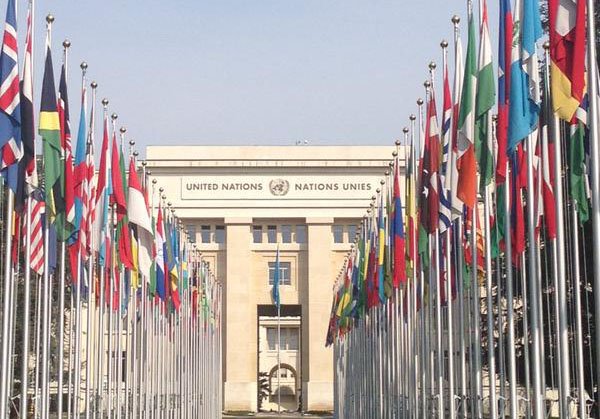
Sep 5, 2018
The ICJ, together with more than 750 other non-governmental organizations, has written to the new UN High Commissioner for Human Rights highlighting the important role of her office in speaking out for human rights and against governments that violate them.
The joint letter read as follows:
“As local, national, regional, and international civil society organizations from every corner of the world, we offer warm congratulations on your appointment as United Nations (UN) High Commissioner for Human Rights.
We are committed to a world in which every person enjoys human rights and dignity and in which our communities are fair, just and sustainable. We consider that a strong High Commissioner, working in strategic partnership with independent civil society, can contribute significantly to the realization of this vision.
You take up office at a time when human rights are under attack and when we risk the reversal of many of the achievements of the modern human rights movement. We look to you in these troubled times to be an unwavering voice in the defence of human rights, and of victims, rights-holders and human rights defenders around the world.
On every continent, the rights of individuals, communities and peoples are being violated and abused by governments and non-state actors, often with complete impunity. Civil society, peaceful dissidents, and the media are often brutally silenced. The role of your Office in ensuring robust monitoring of, and reporting on, such situations is essential for curbing violations and deterring further abuse, as well as for ensuring justice and accountability. Technical-assistance and capacity building by the OHCHR is also critical and, to be effective, should be approached holistically alongside a rigorous assessment of the rights challenges in the country, including through key indicators to measure progress and assess the degree of engagement and cooperation by the State.
As High Commissioner, you have a unique role to play in bringing country situations of concern to the attention of the UN Human Rights Council and other UN bodies, particularly situations that may not be on their agenda or which receive limited attention, often because of political pressure. This role should extend to providing briefings to the Security Council on situations either on its agenda or that, if left unattended, could represent a threat to international peace and security. Monitoring missions and inter-sessional briefings to the HRC can be initiated at the High Commissioner’s prerogative, on the basis of your Office’s universal mandate, bringing attention to neglected country situations and contributing towards the achievement of the Council’s mandate to prevent human rights violations.
We are aware that the position of High Commissioner comes with its own challenges. Many States will insist you avoid “naming and shaming” and push you to engage in “quiet diplomacy” and to respect national sovereignty. Often, those most intolerant of criticism and most forceful in suppressing dissent will speak the loudest in seeking to mute your voice. Survivors, victims and defenders on the front line in countries where their rights are being violated will rely on you as a human rights champion, to have the courage and conviction to call out violators clearly and publicly, even when it’s challenging or unpopular with governments.
Globally, the rights essential to civic space are being systematically undermined. Civil society and human rights defenders face severe daily risks in their struggle to defend human rights on the ground, including imprisonment, asset-freezes, defamatory campaigns, torture, enforced disappearance, and even death. Risks are also present in the UN context, where individuals frequently face intimidation, harassment or reprisals for their engagement with the UN. We urge you to be a staunch defender of the rights of defenders both on the ground and at the UN, to publicly call out violators, and to undertake or push for investigations into attacks and reprisals. We also encourage you to take full advantage of the distinct, often innovative complementary role of civil society to the work of the OHCHR, and ensure the Office works closely with civil society as a strategic partner at the national, regional, and international levels.
Currently, the human rights framework itself is under unparalleled attack. Authoritarian populists are attacking the universality of human rights, disproportionately and unlawfully restricting rights in the purported interests of “national security,” often tacitly or openly encouraging attacks by their followers or vigilantes on rights defenders as well as the vulnerable and poor, while selectively interpreting human rights and seeking to co-opt or subvert human rights mechanisms to suit their political agendas. Safeguarding and strengthening universal human rights norms and mechanisms should be a core responsibility of the High Commissioner.
The current climate highlights the need for a strong public advocacy role for your mandate in the defence of international human rights law and the international human rights system, as well as a strong role internally within the UN to mainstream respect for human rights throughout the work of UN organs and agencies, and within the Sustainable Development Agenda.
Once again, we congratulate you on your new role, and stand ready to support you and your Office in the fulfilment of your vital mandate.”
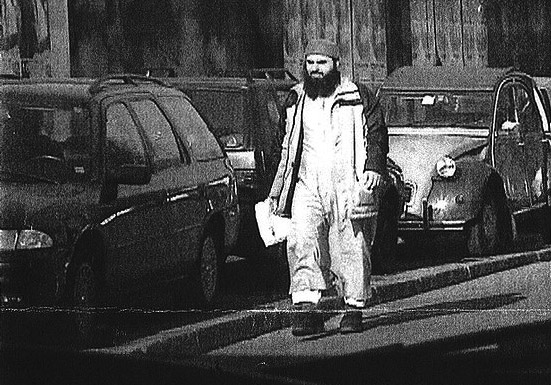
Sep 3, 2018
Today, the ICJ called on the President of the Council of Ministers, Giuseppe Conte, to remove the legal obstacles that for over a decade have frustrated justice in the case of Abu Omar, a victim of gross human rights violations during the so-called war on terror launched by the US in the 2000s.
Specifically, the organization said that the doctrine of “secret of state” , which shields from public and judicial disclosure information purported to affect national security interests, should be lifted in any case pertaining to the rendition of Abu Omar.
In a letter to President Conte, the President of the ICJ, Robert K. Goldman, recalls that Italy has been condemned by the European Court of Human Rights for its complicity in the unlawful rendition and enforced disappearance of Abu Omar and that Italy has a duty under international law to do all that is possible to unveil the truth to the victims and the general public about such crimes under international law.
“The Italian public has a right to know the truth about a gross violation of human rights that occurred in its country and about the role its own secret services and institutions played in it”, said Massimo Frigo, Senior Legal Advisor for the ICJ’s Europe Program.
“President Conte should lift state secrecy on this case right away, to demonstrate that he holds true to Italy’s obligations under international law and transparency and accountability of Government before its people.”
The ICJ noted that the European Court of Human Rights has determined, in Nasr and Ghali v. Italy, that Italian government violated human rights, including by allowing for effective impunity for such crimes despite the laudable efforts of the Italian judiciary to prosecute and try those responsible,” said Massimo Frigo.
“It is time for Italy to live up to its international obligations and show to the world and its people that gross violations of human rights and crimes under international law will not be tolerated and that accountability must be upheld at all times and without hesitation,” he added.
Background
Hassan Mustafa Osama Nasr (also known as Abu Omar) is an Egyptian national who was kidnapped in the streets of Milan in 2003 by CIA operatives, with the collaboration of Italian agents, while he was living in Italy with refugee status.
He was then subjected to torture and other cruel, inhuman or degrading treatment during his travel to Egypt and in Egypt, where he endured several years in arbitrary detention.
The rendition of Abu Omar, that also constituted an enforced disappearance under international law, was investigated and prosecuted by the Public Prosecutor’s Office of Milan and tried in the criminal tribunal, court of appeal of Milan and Court of Cassation.
This has been the only known prosecution and trial anywhere in the world against State agents alleged to be responsible for human rights violations in the context of the US-led rendition and secret detention system.
While 23 US agents and three Italian citizens were convicted – though without serving their sentences – the apex of the Italian military secret service (then SISMI) could not be tried because the Government invoked the doctrine of state secrecy in the proceedings.
The European Court of Human Rights found unanimously that that Italy had been complicit in the operation and had breached its obligations to prohibit and investigate torture and inhuman of degrading treatment of punishment (article 3 ECHR); the right to liberty of Abu Omar (article 5 ECHR); the right of his wife, Nabila Ghali, not to be subject to inhuman or degrading treatment caused by the suffering of not knowing the whereabouts of her husband (article 3 ECHR); their right to family life, and their right to an effective remedy for human rights violations (article 13 ECHR).
The judgment is still awaiting full execution by the Italian authorities, although there have been payments to the victims.
Contact:
Massimo Frigo, Senior Legal Advisor for the ICJ’s Europe Program
E-mail: massimo.frigo(a)icj.org
Italy-justice for Abu Omar-advoacy-open letters-2018-eng [Open Letter in English PDF]
Italy-justice for Abu Omar-news-press releases-2018-ita [Press Release in Italian PDF]
Italy-justice for Abu Omar-advocacy-open letters-2018-ita [Open Letter in Italian PDF]
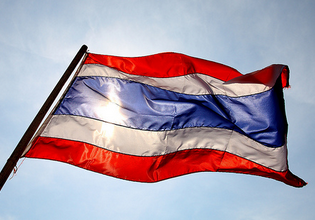
Aug 15, 2018
Today, the ICJ submitted recommendations to Thailand’s Council of the State concerning the Draft Criminal Inquiry Act and the Draft National Police Act, which were scheduled for public consultation between 2 and 16 August 2018.
The ICJ welcomed the Committee Considering Draft National Police Act’s efforts to enhance the effectiveness and fairness of the criminal justice system in Thailand through the draft laws.
The ICJ noted, however, that modifications would be necessary to some amendments to ensure they optimally served the ends of justice and were in conformity with international standards.
In particular, the ICJ made recommendations as to how these provisions could be further strengthened:
With respect to the Draft Criminal Inquiry Act
- Section 7. Receipt of complaints and/or allegations by inquiry officers
- Section 16. Prohibitions against violation of the presumption of innocence; and Duty to conduct prompt, continuous and fair investigations
- Section 17. Prohibition against entry into a search area and audio and/or visual recordings of the operations of officers by unauthorized personnel
With respect to the Draft National Police Act
- Section 105. Use of firearms and/or force against a police officer in a situation of dereliction of duty, in strictly unavoidable circumstances
Contact
Kingsley Abbott, ICJ Senior Legal Adviser, e: kingsley.abbott(a)icj.org
Full letter in English (PDF): Thailand-Draft-Police-Code-Advocacy-Open letters-2018-ENG
Full letter in Thai (PDF): Thailand-Draft-Police-Code-Advocacy-Open letters-2018-THA
Read also
Thailand: ICJ submits recommendations on criminal justice reform amendments
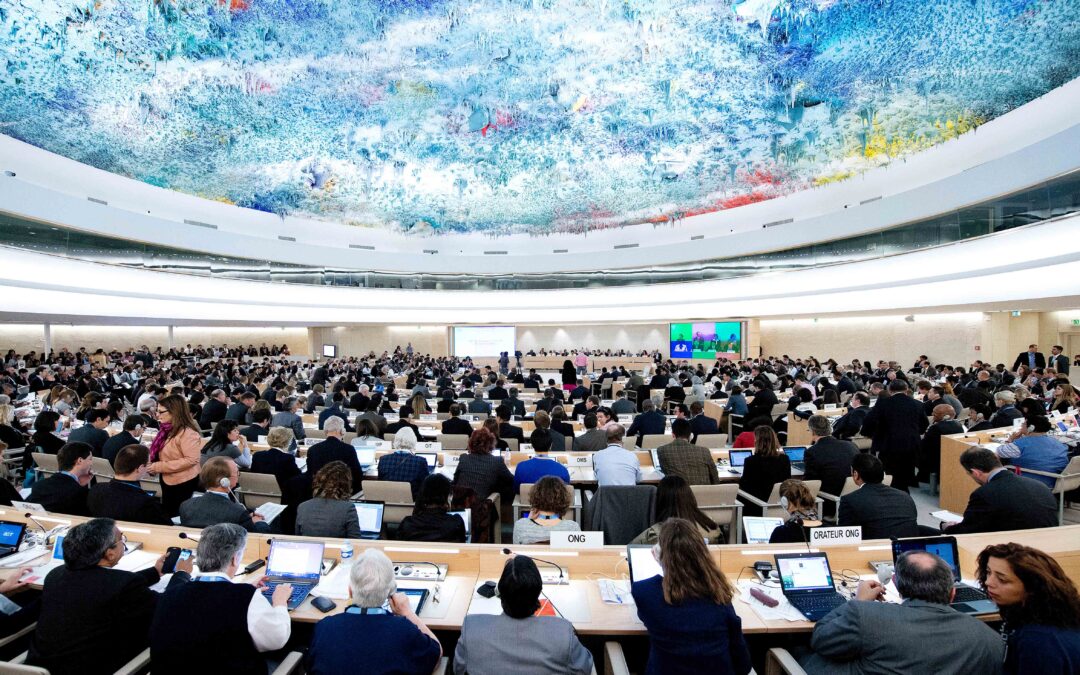
Jul 4, 2018
The ICJ joined 19 other NGOs to call on Member States of the UN Human Rights Council to support a resolution on civil society space and access to international and regional organisations.
The joint open letter to Member States of the UN Human Rights Council comes ahead of anticipated adoption of the resolution later this week.
The Open Letter read as follows:
“Re: Call for your support and solidarity on HRC38 resolution protecting civil society space (A/HRC/38/L.17_Rev.1)4 July 2018
Your Excellency,
We, the undersigned civil society organisations, spanning across all regions of the world call on your delegation to support of the draft resolution ‘Civil society space: engagement with international and regional organisations’ to be considered for adoption during the 38th session of the Human Rights Council (expected to be considered on 5-6 July 2018). We call on your delegation to send a clear message of support to civil society, by co-sponsoring the draft resolution as tabled, rejecting any attempts to undermine this draft resolution, and voting in favour of the resolution if a vote is called.
The resolution is presented by a cross-regional group of States (Chile, Ireland, Japan, Sierra Leone, and Tunisia) and was developed through broad consultation with States and civil society.
This draft resolution is an opportunity for your delegation to show leadership in supporting the crucial role a healthy and vibrant civil society plays in contributing to human rights, sustainable development, peace and security. It builds on the UN High Commissioner for Human Rights’ report on civil society engagement with international and regional organisations which affirms that:
“Civil society engagement ensures that international discussions and decisions are informed by what is happening on the ground, that a full range of perspectives are heard, and that decision-making is fully informed by relevant expertise and experience. Where civil society engagement is restricted, responses to security threats, development challenges, environmental disasters and disease, among others, risk being ill-informed and weaker. Civil society participation provides a critical contribution to the prevention of violence, insecurity and, in turn, conflict.”
It is also imperative to safeguard civil society actors’ unhindered exercise of the rights to freedoms of expression, opinion, assembly and association, as well as the right to unhindered access and communication with international and regional organisations.
During negotiations of this draft resolution, a number of States sought to undermine many of its essential elements, including those listed below. The core group has already made several concessions to accommodate the concerns of States during the negotiations. Efforts to reach consensus should not lead to further weakening of the draft resolution.
The text of the resolution, as tabled, is a substantive contribution to the Council’s previous work on protecting civil society space. In particular, the text:
- Recognizes the essential contribution that civil society makes to international and regional organisations and that the effective functioning of the regional and international human rights mechanisms and bodies is inexorably linked to civil society participation;
- Emphasizes the crucial importance of the active involvement of civil society in promoting good governance and their indispensable role in building peaceful and democratic societies.
- Recognizes the importance of strengthening diverse and pluralistic civil society and provides useful guidance for States and organisations to ensure that their policies ensure support to diversity of civil society participation
- Encourages UN bodies to review and update their frameworks for engagement with civil society to reflect and respond to the challenges and to support improved civil society engagement with international and regional mechanisms
- Provides useful guidance for States and organisations to review and update their national frameworks for engagement with civil society to ensure their full and effective participation including access to information and access to resources.
- Calls on States to prevent all threats, attacks, reprisals and acts of intimidation against civil society actors and to ensure access to justice and accountability
- Creates opportunities and incentives for States to voluntarily share and develop their good practices on guaranteeing a safe and enabling environment for civil society
We urge your delegation to support these positive calls in the resolution, none of which go beyond existing State obligations under international human rights law, by voting in favor of the resolution as tabled.
Conversely, we urge you to vote against adverse amendments that would significantly weaken the resolution. The proposed amendments would, among other negative impacts, restrict rather than safeguard space for civil society, including by:
- Restricting the right to freedom of association by imposing limitations on funding to civil society, contrary to the ICCPR (Article 22) and the Declaration on Human Rights Defenders (Article 13) (L.37)
- Challenging civil society engagement with international and regional organisations by imposing vague restrictions such as “respecting the sovereignty and territorial integrity of States”. Such restrictions may undermine the universality of human rights including the exercise of the right to freedom of expression and may impair the work of civil society actors working in relation to conflict zones and disputed territories. (L.38)
- Rejecting the expert guidance and practical recommendations made by the High Commissioner to protect civil society space and guarantee the full and effective engagement of civil society with regional and international organisations. (L.39)
Excellency, we ask that your delegation stands with civil society in support and solidarity by cosponsoring this progressive and valuable resolution on enhancing civil society engagement with international and regional organisations, opposing any amendment that would weaken the text, and voting in favour of the resolution if a vote is called.
Yours sincerely,
- ARTICLE 19
- Asian Forum for Human Rights and Development (FORUM-ASIA)
- Asian Legal Resource Centre (ALRC)
- Cairo Institute for Human Rights Studies (CIHRS)
- Centro de Estudios Legales y Sociales (CELS)
- Child Rights Connect
- CIVICUS:World Alliance for Citizen Participation
- Commonwealth Human Rights Initiative (CHRI)
- Conectas Direitos Humanos
- DefendDefenders (the East and Horn of Africa Human Rights Defenders Project)
-
European Center for Not-for-Profit Law
-
Front Line Defenders
- Human Rights House Foundation (HRHF)
- Human Rights Watch (HRW)
- International Commission of Jurists (ICJ)
- International Federation for Human Rights (FIDH)
- International Humanist and Ethical Union (IHEU)
- International Service for Human Rights (ISHR)
- The Irish Council for Civil Liberties
- Women’s International League for Peace and Freedom (WILPF)”









